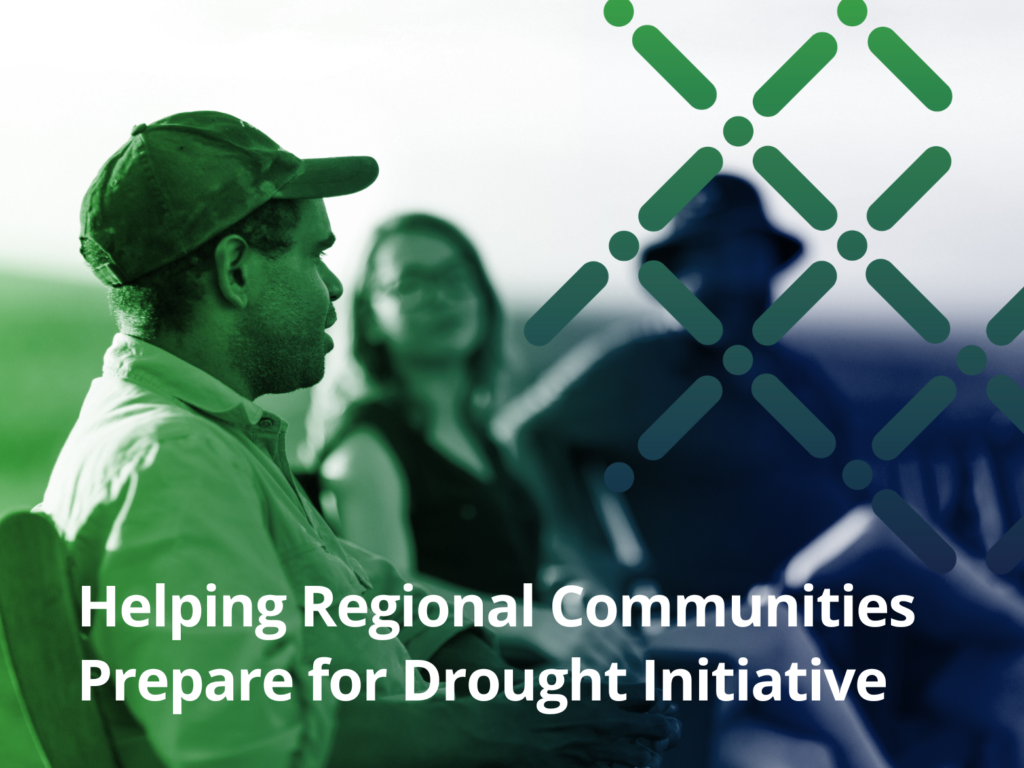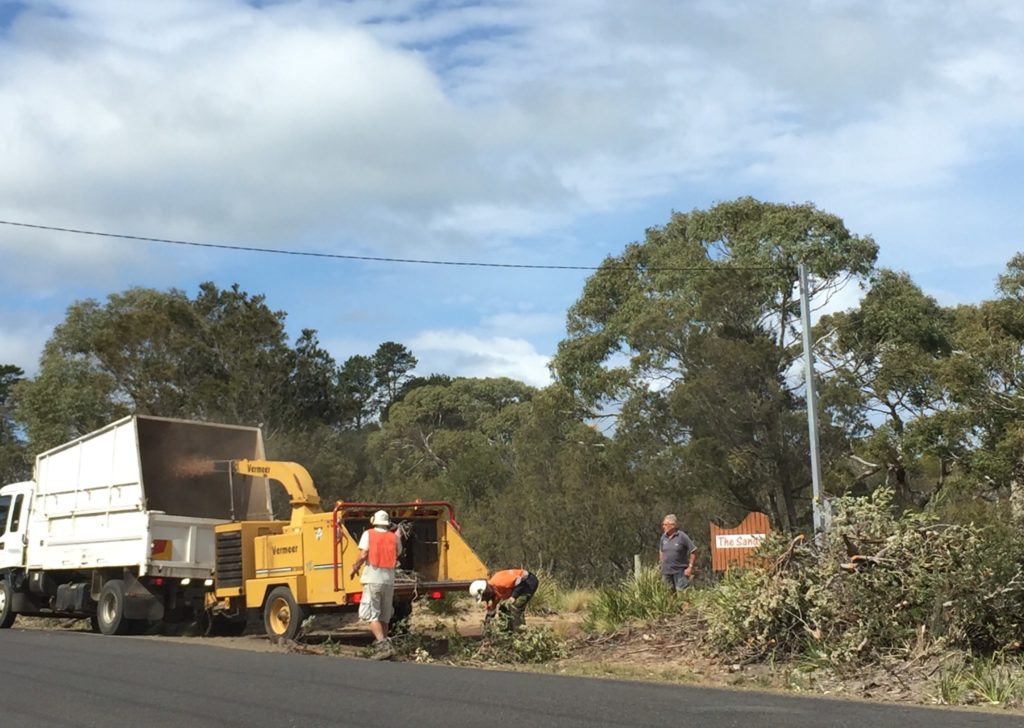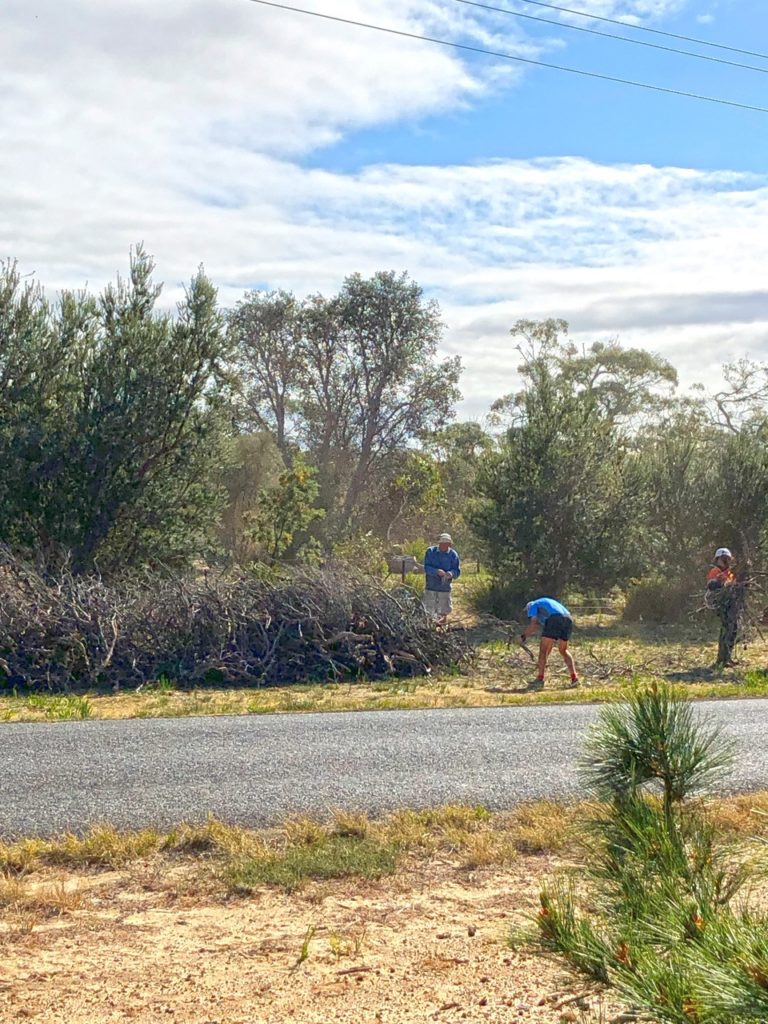Foundation for Rural & Regional Renewal (FRRR)
19 projects funded thanks to the Future Drought Fund
FRRR today announced the final projects funded through the Community Impact Program, which is part of the Helping Regional Communities Prepare for Drought Initiative funded by the Australian Government’s Future Drought Fund.

In this final tranche of funding, delivered in partnership with ARLF, grants of nearly $1 million have been awarded to support 15 organisations in delivering 19 projects across the Central West region of NSW, the Eyre Peninsula region of SA and the Loddon Campaspe region of VIC. The grants are designed to enhance drought preparedness through strengthening, enabling and building social capital.
FRRR’s Disaster Resilience and Recovery Lead, Nina O’Brien, says that there are a range of projects being funded in each area, which reflect local priorities.
“All these projects have come about thanks to a robust, locally-led co-design process. In Central NSW, for example, we saw more than 20 organisations, including First Nations groups, actively engage in helping to prioritise what would make a difference in their region.
“The Central West of NSW has been impacted by flooding, as well as bushfires on top of the Black Summer bushfires. These events, combined with prolonged drought conditions have left the community fatigued and in continuous recovery.
“This funding, which will be coordinated by Regional Development Australia – Orana, will support projects including strengthening local leadership and networks through a series of events; a seminar for rural women, which will create a safe space for sharing and creating connections; and educational activities. Other projects in this region will include a pilot program to increase access to better mental health support; a series of networking and social support activities targeting young women; and workshops providing culturally sensitive information in different languages targeting the diverse multicultural community living in the region.
“It’s a similar story in South Australia’s Eyre Peninsula, where the program activity will be coordinated by Agricultural Innovation and Research Eyre Peninsula. The co-design process saw 37 participants from the not-for-profit sector, government, small business and general community invited to have input. Four projects have been supported, again with a series of events and activities focusing on different groups, including rural women, young farmers (through peer-to-peer learning) and the broader community, with a focus on building understanding of drought and drought preparedness at a farm, environment and whole of community level.
“In the Loddon / Campaspe region, in Victoria, there is a history of drought, although in late 2022, the region experienced significant flood damage. Several communities remain displaced with the recovery and rebuilding process hampered by a variety of factors, including volunteer fatigue. Despite this, there was strong engagement in the co-design process, including the local traditional owners, the Dja Dja Wurrung Clans Aboriginal Corporation. Coordinated by LEAD Loddon Murray Inc, there are four projects that will be supported in this region, including redevelopment of the Bridgewater Community Hub to build a community garden and sensory garden, backed up by eight community workshops to share knowledge. There will also be an education program – ‘Let’s Talk About the Weather’ – involving local community mapping of the network and focused capacity building support. The Dja Dja Wurrung Clans will lead a project that will employ a local coordinator who will work with Council, Landcare, community organisations and private landholders to heal Country, building understanding of traditional land management practices and ways to restore the land. The final project will focus on building and strengthening networks and building capacity of individual leaders in climate resilience,” Ms O’Brien explained.
In addition to the projects that are being supported, each region will also engage in a leadership development activity. ARLF Chief Executive, Matt Linnegar, says those activities include either a community leadership program, leadership action initiative, group coaching or change-maker workshops.
“The activities will be tailored to each area and we’re already working with the local community partner lead organisation to work out the best timing for the various activities. Leadership development is a critical part of building the social capital required to strengthen drought resilience. It helps to create and build local networks, as well as develop the skills and knowledge to take action and address challenges and make the most of opportunities.”
Participants also gain access to the wider alumni network of the ARLF. “It’s these connections that prove invaluable to people. When they’re stuck, there’s someone to ask for advice,” Mr Linnegar said.
FRRR is currently inviting applications for small grants to support activity in parts of the country where there was no Community Impact Program grant awarded. Full details are available at www.frrr.org.au/small-networks-grants.
Other elements of the Future Drought Fund’s Helping Regional Communities Prepare for Drought Initiative are also underway, including a Mentoring program and an online network connecting community members involved in projects in each of the regions, both led by ARLF. FRRR has also launched a portal providing access to experts to support delivery of their projects, if local expertise isn’t available.
Community Impact Program grantees have commenced delivering project activity, increasing connection across regions and supporting locally identified and driven drought preparedness activities. Some activities delivered so far are young farmer network events, women’s events and local field day type activities in several regions, with strong local participation and attendance. From FRRR’s perspective, it is exciting to see the momentum being created by passionate locals keen to see their regions remain connected, and vibrant as dry times increase across many communities nationally.
Learn more about the Helping Regional Communities Prepare for Drought Initiative at www.frrr.org.au/drought-preparedness.
The full list of grant recipients and their projects are below.
| Organisation | Project | Location | Grant | |||
|---|---|---|---|---|---|---|
| New South Wales: Region 03 Central West | ||||||
| Regional Development Australia - Orana | Community Partner Lead Organisation (CPLO): Region 03 Strengthen drought preparedness and drive local action in the Central West region through the coordination of Community Impact Program activities and evaluation administration. | Central West NSW Region | $49,608 | |||
| Coonamble Chamber of Commerce Incorporated | Wellbeing Changemaker Assistance Program Support members of the Coonamble Chamber of Commerce (80+ members) and their families to face drought and other stresses through the provision of access to mental health support services as community workshops and the provision of space locally for mental health support services in Coonamble. | Coonamble Shire | $85,465 | |||
| Hovells Creek Landcare Group Incorporated | Building Community Networks, Community Support and Resilience to Drought Through Social and Learning Activities Increase awareness of and change attitudes to drought preparedness through the delivery of two community workshops focused on holistic property management during drought. | Cowra, Weddin, Hilltops, Hovells Creek, Wyangala | $14,700 | |||
| Oriscon Incorporated | Creating Connections Project Stimulate a change in awareness of and change attitudes towards drought preparedness at the community level through the development of a multilingual knowledge and information sharing website, two community workshops and a networking event supporting migrant community members in connecting, accessing, and understanding localised climate adaptation and drought preparedness activities and information across Central Western NSW. | Dubbo, Warren, Gilgandra, Wellington, Nyngan, Narromine, Wellington, Stuart Town | $10,000 | |||
| Tradies IN Sight | NSW Real Reconnections Tour Build local networks and social support mechanisms required to better prepare for drought through the provision of eight informal mental health events focused on connecting regional men. | Dubbo, Narromine, Gilgandra, Coonabarabran, Warren, Nyngan, Cobar, Tattenham, Parkes, Bourke, Brewarrina, Walgett | $18,417 | |||
| Voices of Women Incorporated | EMBRACE: Voices of Women Dubbo Build a shared experience that can be drawn upon for support during drought through local networks and social support for young women aged 18-35 through the delivery of an intensive creative workshop focused on building relationships and confidence of young women. | Dubbo | $9,550 | |||
| Watershed Landcare Group Incorporated | Empowering Watershed Women Stimulate a change in awareness of and attitudes towards drought preparedness through the delivery of a seminar for rural women focused on providing a safe space for communication, support, mentoring, professional development and empowerment. | Mudgee, Cudgegong | $10,000 | |||
| Watershed Landcare Group Incorporated | Holistically Strengthening the Capabilities and Resilience of our Rural Community Enable the community to build their local leadership, networks and social support mechanisms at a community level through the delivery of three connection and networking events and Holistic Management training focused on a comprehensive drought and disaster resilience approach to agricultural practices and decision-making. | Mudgee, Gulgong, Rylstone, Kandos | $40,700 | |||
| Western Rural Connect Inc. | Western Rural Connect Networking and Development Events Build local leadership, networks and social support to build drought and other disaster resilience through the delivery of three Women in Agriculture events over two years. | Narromine | $18,000 | |||
| South Australia: Region 23 Eyre Peninsula | ||||||
| Agricultural Innovation & Research Eyre Peninsula Incorporated | Community Partner Lead Organisation (CPLO): Region 23 Strengthen drought preparedness and drive local action in the Eyre Peninsula region through the coordination of Community Impact Program activities and evaluation administration. | Eyre Peninsula SA Region | $30,760 | |||
| Agricultural Innovation & Research Eyre Peninsula Incorporated | Young Farmer – Facilitated Peer to Peer Learning Share innovative ways to build drought resilience and build local leadership, networks and social support in Ceduna and Cleve locations. AIR EP will offer four field events for young farmers focusing on young people aged 18-35 years. | Ceduna and Cleve | $60,000 | |||
| District Council Of Cleve | Future Farmers Focus Future Farmers support a change in awareness of and attitudes to drought preparedness at the community level through the delivery of learning workshops for two target audiences: 1. high school students; 2. families, industry and broader community. | Cleve | $47,000 | |||
| WoTL Ltd | Better Connected Communities Engage 12-15 young women in remote and highly drought sensitive communities to participate in a series of workshops covering a range of topics with overt social drought preparedness themes and outcomes. | Cleve, Franklin Harbour | $77,456 | |||
| WoTL Ltd | Regenerate Rural Women Learn and share innovative ways to build drought resilience by engaging approximately 15 local women in a comprehensive program covering topics to build personal resilience, refine decision making skills, clarify priorities and goals, and enhance personal, family and community wellbeing in Ceduna and Lower Eyre Peninsula. | Lower Eyre Peninsula, Ceduna | $68,400 | |||
| Victoria: Region 28 Loddon Campaspe | ||||||
| Lead Loddon Murray Inc | Community Partner Lead Organisation (CPLO): Region 28 Strengthen drought preparedness and drive local action in the Loddon Campaspe region through the coordination of Community Impact Program activities and evaluation administration. | Loddon Campaspe VIC region | $80,000 | |||
| Lead Loddon Murray Inc | 2024 Loddon Murray Community Leadership Program - Climate Resilience Enable an increase in the reach and activities of community leaders, mentors, networks and organisations driving action on drought resilience through the delivery of LMCLP Climate Resilience program. | Loddon Campaspe VIC Region | $80,000 | |||
| Kooyoora Women's Network Inc | Bridgewater Railway Station Redevelopment Build depth of social connection and increase skills, knowledge and understanding of the risks posed by drought and climate change while offering a place for community connection through the further development of the Bridgewater Community Hub. | Bridgewater, Loddon Shire | $75,000 | |||
| Dja Dja Wurrung Clans Aboriginal Corporation | Healing Country across Djandak Stimulate a change in awareness of and attitudes to drought preparedness while increasing engagement with and participation of First Nations community members through the delivery of the Djaara Forest Gardening Engagement Coordinator pilot program, “Healing Country on Djandak”. | Campaspe, Loddon, Central Goldfield, Bendigo | $100,000 | |||
| Jumpleads NFP Limited | Let's Talk About the Weather | Drought Resilience Enable communities to identify and adopt innovative ways to build drought preparedness at the community level through the delivery of a Let’s Talk About the Weather program across Campaspe, Loddon and Central Goldfields local government areas. | Campaspe, Loddon, Central Goldfields | $120,000 | |||
Funding to strengthen community networks and capabilities
FRRR is inviting applications from community organisations in remote, rural and regional communities for projects designed to enhance local drought preparedness.

Supported by the Australian Government’s Future Drought Fund through the Helping Regional Communities Prepare for Drought Initiative, the Small Network Grants program can fund simple, one-off or seed-type initiatives to strengthen community networks and capabilities in 35 agriculture-dependent regions.
Nina O’Brien, FRRR’s Disaster Resilience and Recovery Lead, said that there are a wide range of one-off projects that promote community networks, which the program can fund.
“Through this program, we are enabling agriculture-dependent communities to identify and act on their drought preparedness and resilience priorities at a grassroots level in the ways that best suit their communities.
“From previous programs, we know that social networks are critical to drought resilience because they promote a sense of belonging by providing opportunities for a diverse range of community members to connect and participate.
“Events, such as field days or practical workshops, are effective tools for improving mental health and wellbeing, because they give participants the opportunity to connect with their neighbours and learn skills to address the local risk factors associated with a changing climate. So we look forward to seeing the projects that come forward,” Ms O’Brien said.
FRRR wants to hear from groups with projects that fit into one of these five categories:
- Networks: Initiatives to strengthen the capacity, capability, and coordination of professional, social or community networks
- Community Events: Field days, conferences, forums, summits, and seminars that facilitate professional, social and community connection to build understanding of drought and climate change associated risks.
- Training: Initiatives to improve skills and capacity in community risk management, planning and project delivery in relation to drought.
- Community Infrastructure: Small scale community infrastructure projects to improve connectedness, wellbeing, and facilities.
- Development and Learning: Initiatives to facilitate professional, personal and leadership related development and learning to support drought preparation.
There are two streams of funding – one offering up to $20,000 in agriculture dependent LGAs in priority remote, rural and regional locations, and the second stream offering up to $50,000 in eligible LGAs in the NSW Far West, NT Tablelands, NT Arid Lands and WA Great Southern regions, where there is no active Community Impact program. Details of the LGA’s in each stream are on FRRR’s website.
Applications are open now and close 14 November 2023, with successful applicants announced in March 2024. There will be a second round of the program, which is expected to open in February 2024, with funds announced in June 2024.
For more information, and to apply, visit the program page.
The Dolphin Sands Ratepayers Association is a member of Landcare Tasmania, representing the residents and ratepayers of the fragile sand spit bordered by Moulting Lagoon to the north and Nine Mile Beach to the south. Their aim is to help residents be bushfire-ready by removing some of the highly flammable introduced species and replacing with low-flammability natives.
In April this year, a bushfire destroyed 128 hectares of vegetation in the Dolphin Sands area, leaving the fragile dune system vulnerable to further damage. The community is in a drought declared area, and with the ongoing dry conditions, members of the Association wanted vegetation cleared and mulched well before the next fire season.


Given several of the recent fires in the area, including the April fire, were hazard reduction burns that ‘escaped’, residents were seeking viable alternative to burning green waste, thereby mitigating the risk of burns ‘escaping’.
They worked with the local council and emergency services groups to coordinate a series of working bees throughout Winter to reduce the fuel-load in the 25m ‘defendable zone’ around dwellings and beside driveways.
The Association received a $9,900 Tackling Tough Times Together grant, funded by Westpac Group, to pay for a commercial mulcher and its crew to work through the stacks of vegetation removed during the working bees, and, once mulched, transported it to areas recently affected by fire.
In total 15 truck loads of mulch (about 150 tonnes) were removed from 56 properties, which are now better prepared for the coming bushfire season.

